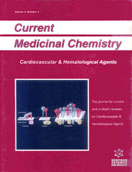Abstract
The Natriuretic Peptide (NP) family, especially its best-characterized member Atrial Natriuretic Peptide (ANP), plays an important role in the regulation of blood pressure homeostasis and salt and water balance. Besides their action in cardiovascular physiology, NPs have been described as anti-inflammatory regulators of macrophage function: they have been reported to inhibit the induction of inflammatory mediators, such as iNOS, COX-2, and TNF-α. In the following review we will focus on a rather novel aspect of NP action: NPs, especially ANP, will be presented as vasoprotective agents. We will specifically focus on ANPs interaction with the complex intracellular signalling networks responsible for proliferation, vascular permeability, attraction and adhesion of leukocytes, and the induction of cytoprotective proteins. We will also discuss the critical mediator systems involved in mediating ANPs benefical actions. Recently, ANP as well as BNP, another member of the NP family, have been introduced as cardiovascular therapeutics. In this context, we will highlight the physiological and pharmacological relevance of NPs, particularly ANP, as endogenous vasoprotective agents.
Keywords: natriuretic peptides, endothelial cells, cgmp, mkp-1, smooth muscle cells, protein kinases, transcription factors
 19
19











